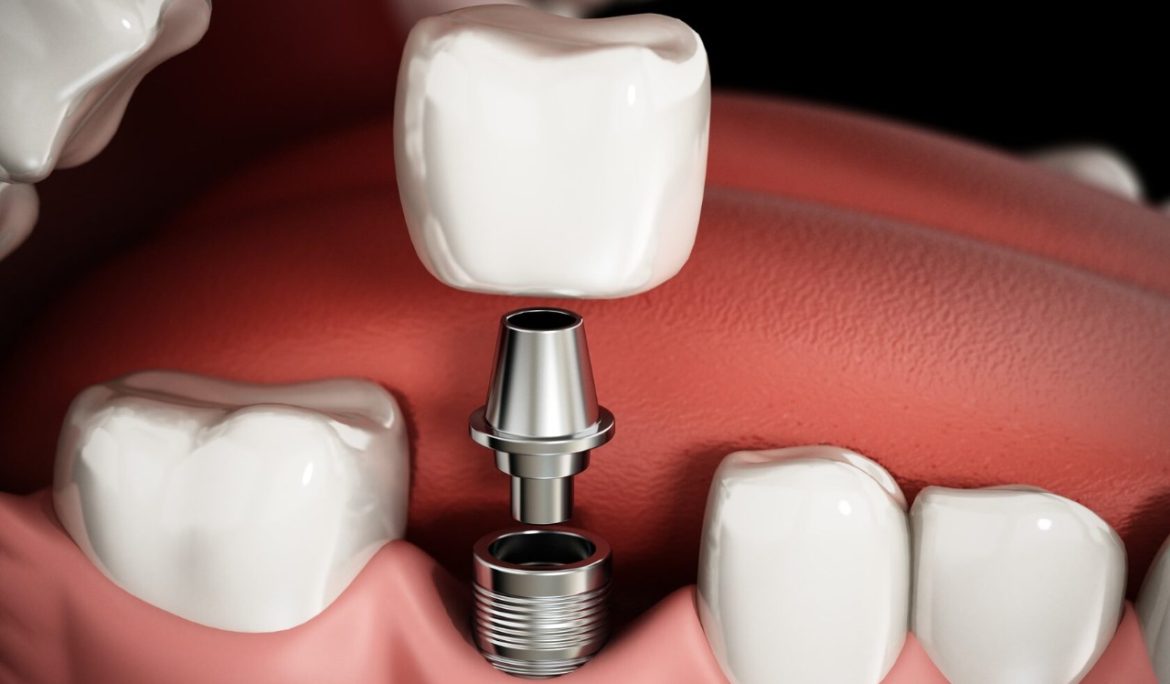DO NOT TOUCH THE AREA
After the implant surgery, it is natural that you may feel like touching the area where the implant has been inserted or taking your tongue there.
This can easily interfere with the healing process causing the implant to fail.
Another action we do that irritates the surgical area is rinsing with mouthwash. Most of the mouthwashes are alcohol-based and this irritates the area hampering the healing process.
Only rinse your mouth using warm salty water or mouthwashes recommended by your dentist to ensure adequate healing.
SOME BLEEDING IS TO BE EXPECTED
It is normal to see blood around the area where the implant is inserted within twenty-four hours of the surgery.
The best action to undertake in this situation is to bite a clean piece of gauze or cotton for about thirty minutes. This puts pressure on the area arresting the bleeding and ensuring good clot forms.
However, if this goes on for more than 24 hours, contact your dentist.
EXPECT SOME SWELLING
After any surgical procedure it is normal to see some swelling around the surgical site.
This is a normal body response to ensure adequate healing by increasing the blood that flows to that area and also the blood cells responsible for the healing process.
A home remedy if it gets too uncomfortable is to put an icepack over the swollen area and if it lasts for more than 3 days, contact your dentist for assistance.
TAKE SOFT FOOD AND FLUIDS
For the first few days after surgery, any excessive pressure to the region can cause bleeding or increase the swelling. Hard food causes this excessive pressure.
Avoid such until your dentist advises you otherwise. Other things to avoid are very hot drinks.
These usually destroy the blood clot formed and this causes the area to bleed.
EXPECT SOME PAIN
It is normal to feel pain over an area where a surgery has been performed when the anaesthesia wears off.
How this pain is managed is that the dentist prescribes some painkillers that you should take afterwards. This ensures comfort afterward.
This pain usually goes down over a span of 3 days.But if it persists or is increasing in nature contact your dentist for assistance.
USE OF ANTIBIOTICS
The use of antibiotics depends on many factors and so there isn’t one shoe size that fits all antibiotics.
Your dentist will prescribe the most appropriate antibiotic based on his clinical examination and other health factors such as drug allergies and interaction of different drugs when given together.
MAINTAIN GOOD ORAL HYGIENE
A wound cannot heal in a dirty environment, the area has to be clean .
Tooth Brushing immediately after the surgical procedure may be difficult.
Therefore, for the first few days, it is advised to rinse your mouth with warm salty water, the dentist may also prescribe a mouthwash and after the healing you may resume your normal toothbrushing.
Avoid mouthwashes unless advised otherwise because they may cause irritation of the wound
REST
It is important to take a rest after having the implant procedure done. This improves healing
AVOID/STOP SMOKING AND DRINKING ALCOHOL.
Smoking and drinking alcohol interferes with normal healing and this is detrimental to the success of the dental implant.
SCHEDULE A CHECKUP VISIT WITH YOUR DENTIST
A checkup is important to ensure problems that may arise are dealt with early enough .















